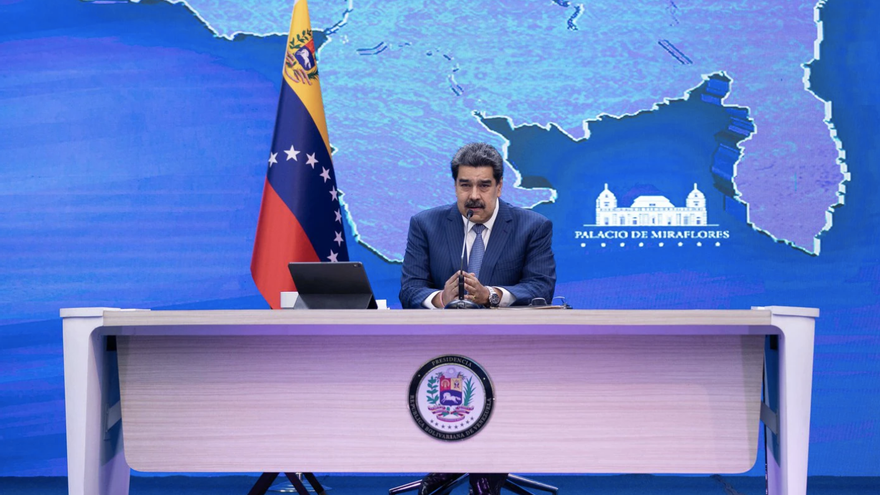
![]() EFE/14ymedio, Caracas, 31 October 2021 — On Sunday president Nicolás Maduro of Venezuela celebrated the 21st anniversary of the signing of the first cooperation agreement with Cuba, which gave rise to various common projects in multiple areas and which continue the constant bilateral collaboration to this day.
EFE/14ymedio, Caracas, 31 October 2021 — On Sunday president Nicolás Maduro of Venezuela celebrated the 21st anniversary of the signing of the first cooperation agreement with Cuba, which gave rise to various common projects in multiple areas and which continue the constant bilateral collaboration to this day.
“We celebrate 21 years of the signing of the Bolívar-Martí Accords that took the fundamental step to advance in the deep, spiritual, cultural and political union of our peoples. (Hugo) Chávez and Fidel (Castro) demonstrated that a new humanity is possible. Long live the Cuba-Venezuela Agreement!” Maduro wrote on his Twitter account.
In an extensive Facebook post, the Venezuelan Presidency describes the agreement as “a show of solidarity, humanism and cooperation” that has allowed the development of 1,487 projects, in which a total of 255,300 Cubans have participated.
The statement indicates that these collaboration projects, established “in the areas of health, education, sports, culture, food, tourism, energy and science, among others” — not naming the collaboration in matters of Security and Interior — have resulted in “Reciprocal advantages and an advance in the efforts of unity that look towards Latin America and the Caribbean.”
However, specialists such as María Werlau and the journalists behind the pseudonym Diego G. Maldonado maintain that more than a symbiosis, Cuba’s relationship with Venezuela is one of dominance. Werlau, specifically, considers the agreement between the two countries as the “asymmetric occupation” of Venezuela by Cuba, “worse” than she imagined when it began in 2000. Maldonado, who titled his research book on this agreement The Consented Invasion, believes Cuba “has bled dry its goose that lays the golden eggs,” Venezuela.
The agreement between the two governments was signed less than two years after Chávez assumed the Venezuelan Presidency, on February 2, 1999, after winning the December 6, 1998 elections.
Since then, Cuba and Venezuela have maintained the accords, despite the death of the two signatories. Then Cuban president, Fidel Castro, died on November 25, 2016, although by 2008 he had already transferred power to his brother Raúl, who, in turn, delegated the Presidency to the current head of state, Miguel Díaz-Canel, in April 2019.
On the part of Venezuela, after the death of Hugo Chávez in 2013, the mandate passed into the hands of Maduro, who continued the collaboration with Cuba, both with Raúl Castro at the head of the Administration and with Díaz-Canel.
In fact, the Venezuelan Presidency asserts that for this year, both nations will advance “in the improvement and expansion of development ties as a path to emancipation and to face the historical challenges, which include overcoming the negative effects of the financial and economic persecution expresses as State policy by the White House, against the lands of Bolívar and Martí.”
____________
COLLABORATE WITH OUR WORK: The 14ymedio team is committed to practicing serious journalism that reflects Cuba’s reality in all its depth. Thank you for joining us on this long journey. We invite you to continue supporting us by becoming a member of 14ymedio now. Together we can continue transforming journalism in Cuba.
